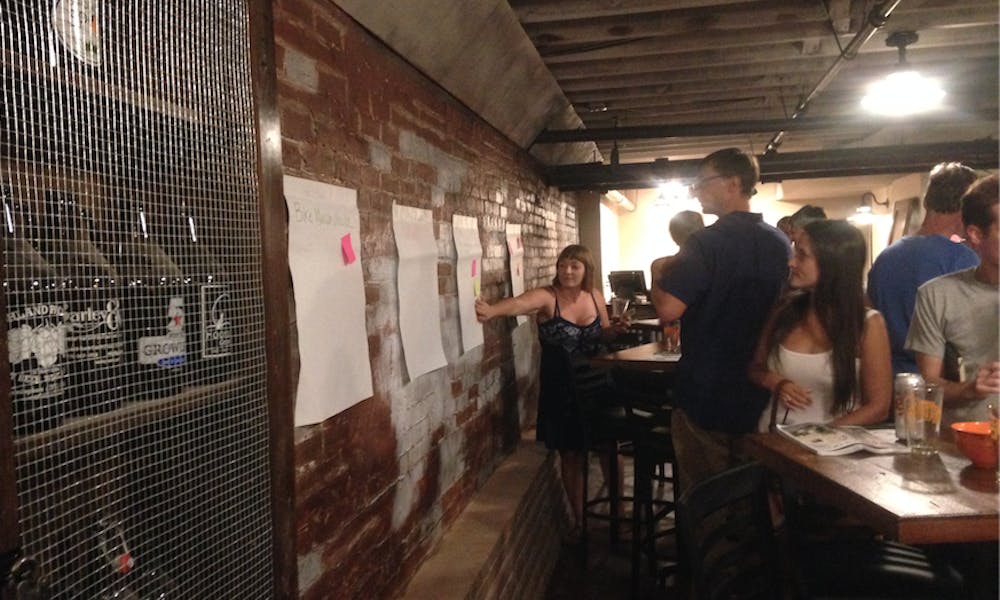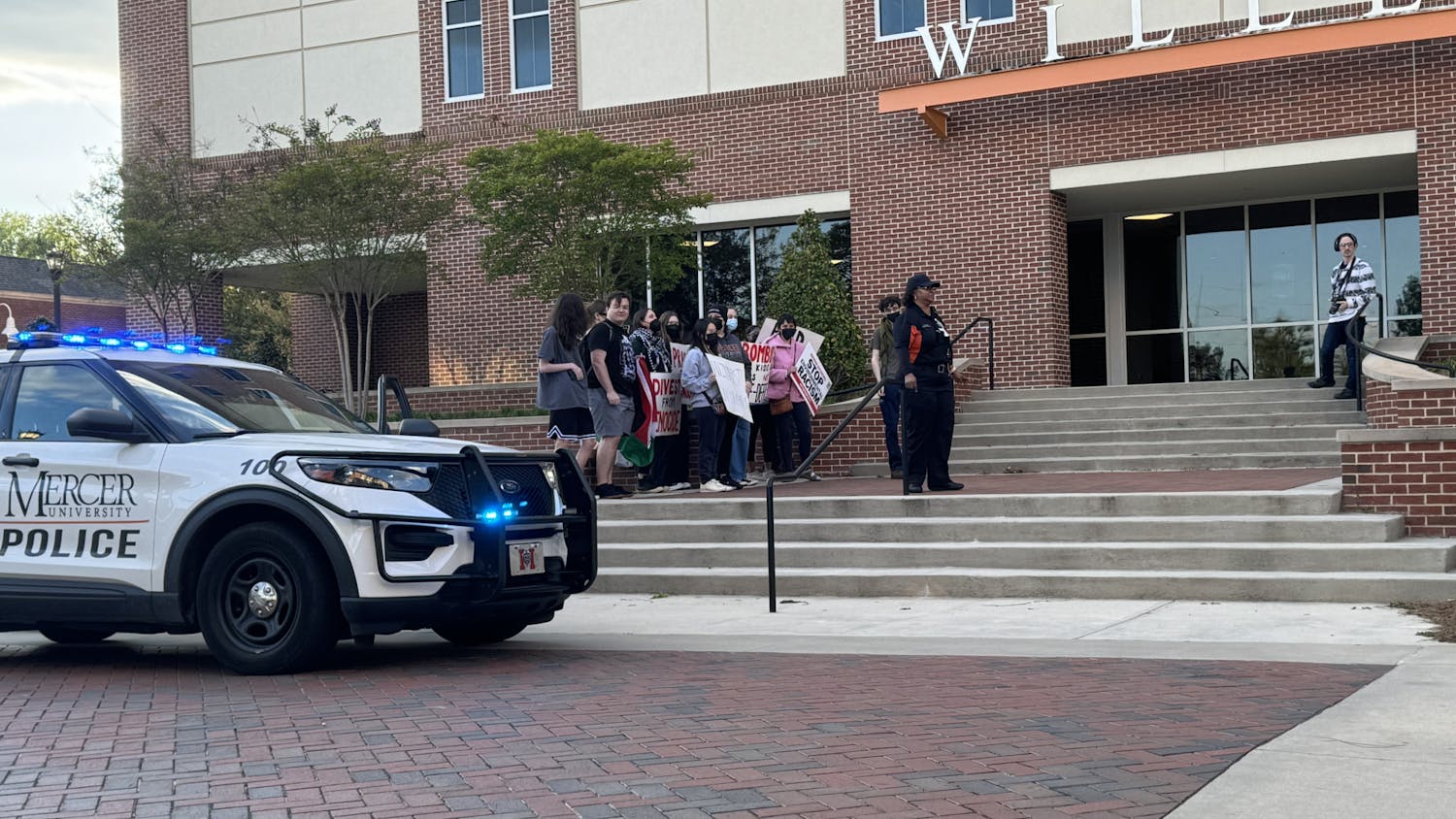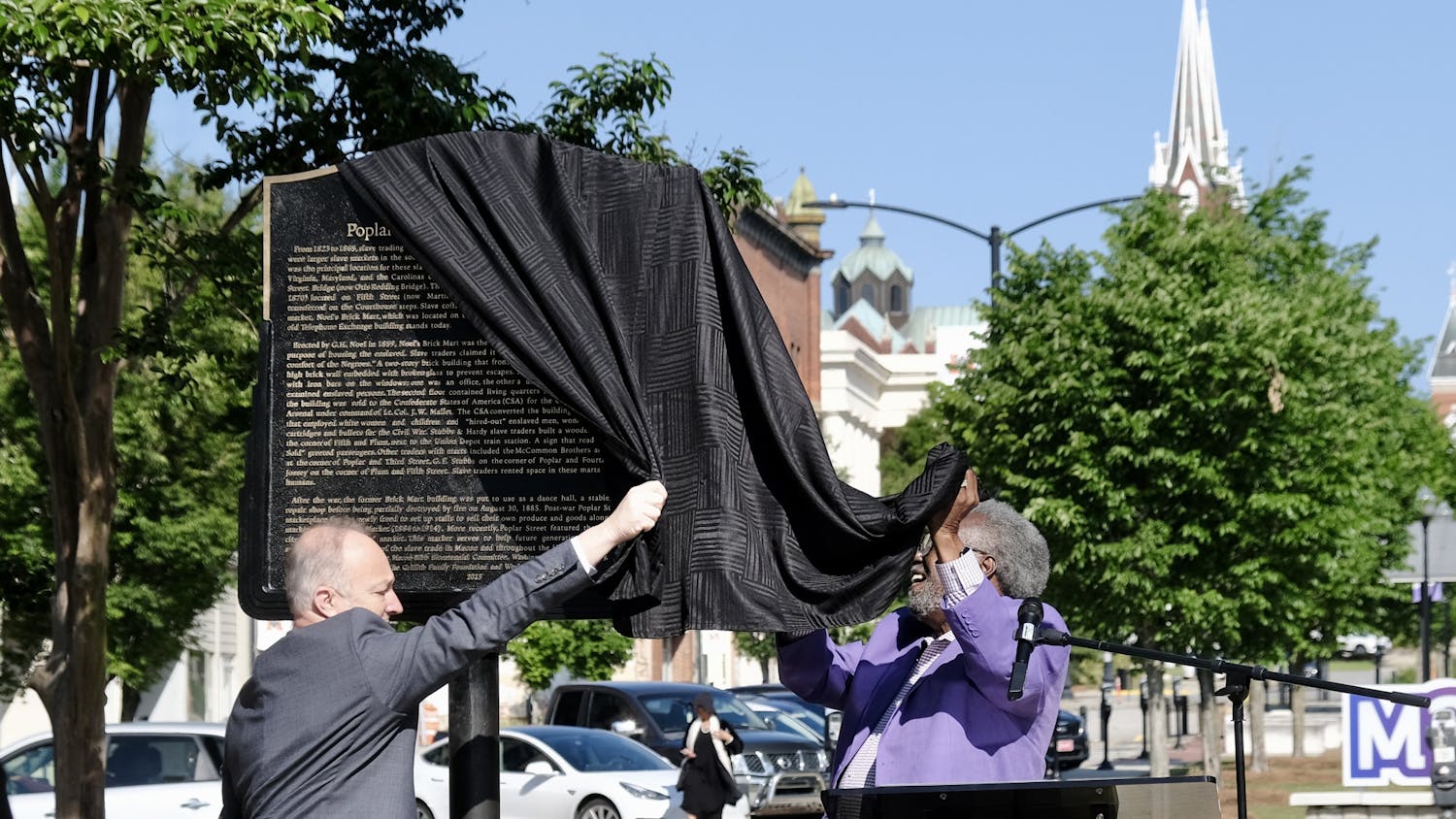Jeff Hugdahl has been teaching chemistry at Mercer University for 18 years. And for at least 10 of them, he’s been riding his bike to work.
The trip takes him anywhere from 15 to 20 minutes and is made up of roads that weren’t designed for cycling. But Hugdahl said that isn’t an issue for him.
“I’ve ridden in a lot of cities in my lifetime, so I kind of know how to ride in traffic. (In) Austin, Texas, I did a lot of riding, and that was back before it became really bicycle friendly, probably. Before it grew up a lot,” Hugdahl said.
Sometimes, though, sharing the road with cars and trucks can be problematic. Drivers don’t always recognize that cyclists also have a right to use the road.
Hugdahl said that just last week, he was riding on Rivoli Drive near Wesleyan College. He recognized that he was causing a hold-up — he was only going about 20 miles per hour on a road that was too narrow and too busy for drivers to pass him safely.
Someone started to lay on the horn.
“Eventually the cars went around me when it was clear to go around,” Hugdahl said. “Except for the last person, who proceeded to stay right behind me, right on my wheel.”
Hugdahl edged his way to the center of the road, slowing down a little in an effort to make sure that this driver knew he had the right to the road.
He said that not all drivers are like that, but he also said that he’s learned to pick and choose his battles.
“Somebody wiser than me once said that right of way is something you yield, not something you own,” he said. “I’m gonna lose in every battle with a big car or a truck. So that’s kinda how I try to live my life. I let ‘em go.”
Ideally, infrastructure improvements would mean that less of those conflicts occur, Hugdahl said. But that kind of change typically comes from local government initiatives and a united cycling community.
So when Hugdahl heard about Bike Macon, a new advocacy group in Macon that was having their first meeting Tuesday, August 18 at Just Tap’d on First Street, he was curious.
“I thought about going, but I kinda forgot about it,” he said. “I wanted to get a beer at the end of the day anyway and just happened to find them and remembered, ‘oh yeah, they’re having this.’”
The group’s inaugural meeting filled the Just Tap’d basement, and the crowd was a mix of everyone from cyclists in full dry-fit to everyday-looking folks who sipped on their choice of beer while Rachel Hollar, the group’s founder, went through a presentation of Bike Macon’s goals.
She emphasized the importance of public space, including streets, in a city such as Macon. One of her goals is to bring attention to those areas in a way that highlights how public areas can be utilized by everyone and build a sense of community.
Hollar opened the floor for various organizations to share their biking initiatives. JR Olive spoke about the work the College Hill Alliance has done to promote cycling, such as the shared bike lane on College Street, their weekly Bike ‘n Bites lunch meet-ups and their part in the 2015 Cherry Blossom Parade.
Aaron Scherf, a junior at Mercer, stepped up to talk about Bear Bikes, which is a Mercer program funded by the John S. and James L. Knight Foundation that rents out bikes and safety equipment to students and provides bike racks and a repair station on campus.
Other representatives told the group about upcoming events around Middle Georgia, including the 2015 Georgia Bike Summit in Milledgeville in November.
There was some talk of cyclist and motorist education gaps when it came to sharing the road, but the focus of Bike Macon’s first meeting seemed to be more on how to bring together cyclists in the area and inspire more people to bike.
“What we really believe it’s going to take is just more people realizing that you can bike in Macon,” Scherf said. “It’s not that (people aren’t) out there (riding their bikes) already. They’re just so spread out, and nobody notices them,” Scherf said.
After the meeting, Hugdahl said he was looking for more projects to improve streets in the city to make cycling safer, like expanding road shoulders and educating people on basic rules of the road.
“Make life a little bit easier for everyone to get along,” he said.
Bike Macon hopes to unite cyclists

Everyone at the Bike Macon meeting was encouraged to brainstorm ideas for how to make the city more bike and pedestrian friendly. Photo cred Sarah Pounds.




